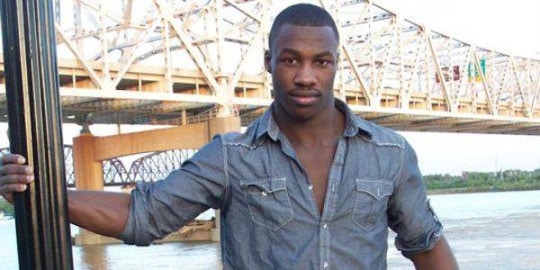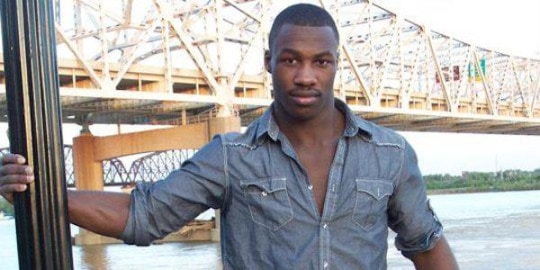

Michael Johnson (a.k.a. “Tiger Mandingo”), the college wrestler who was sentenced to 30 years behind bars for allegedly not disclosing his HIV status to his sexual partners, is speaking out for the first time since being released from prison earlier this month.
In 2015, Johnson was found guilty of “recklessly infecting” multiple male partners with HIV while he was a student at Lindenwood University in Missouri. He was sentenced to 30 years in prison by a jury pool stacked with white heterosexuals, the majority of whom admitted that they believed homosexuality was a sin.
His conviction raised questions about America’s HIV criminalization laws, which activists have long said ignore decades of medical science, fail to actually reduce infection rates, and disproportionately punish black men, as HIV rates are higher among people of color.
Both the American Medical Association and the Infectious Diseases Society of America have publicly condemned laws criminalizing HIV.
Last week, Johnson was released from custody after an appeals court ruled his original trial was “fundamentally unfair,” tainted with racism, homophobia, and a prosecuting attorney hellbent on getting a harsher sentence than many murderers receive.
Now, he’s speaking out about his experience for the very first time.
In an emotional interview with his local TV news station, Johnson says he was painted out to be a villain by the media and prosecutors from the very beginning.
“I was a scary big black gay man wrestler that was out to cause harm,” he says.
In truth, he was just a 21-year-old college student who had tested positive for HIV but who didn’t have access to the education or the life-saving medication he needed to treat it.
“Going from state to state made it very difficult for access to care,” Johnson recalls. “And I was a poor person or minority and just, you know, didn’t have the funds needed to buy a car. What could’ve been almost a hundred dollars for just a taxi ride there.”
Johnson continued dating men while his HIV remained untreated, but he never tried to deceive anyone or “recklessly infect” them, as he was accused of doing. In fact, he says, he was always honest about his status with his partners.
“I would never think of doing that to anyone,” Johnson says. “I do not have anything to prove that the person was lying and that I was telling the truth. And it was a he-said, he-said situation.”
After being initially sentenced to 30 years in 2015, his lawyer worked out a plea deal through an appellate court to get his sentence reduced down to 10 years in 2016.
“I didn’t want to take it,” Johnson recalls of the plea deal, but “under those laws it felt that they could’ve given me anything that they wanted.”
Now that he’s out on parole, Johnson says he’s looking towards the future.
He plans to go back to school to finish his degree and then hopes to become a wrestling coach. He also wants to use his story to help get HIV transmission laws repealed not just in Missouri, but around the country.
“I want as many people as possible to know, I am HIV positive,” he says. “If I break down those walls so people are not afraid to speak their truth and to get their story out, the better it will be for change to happen.”







